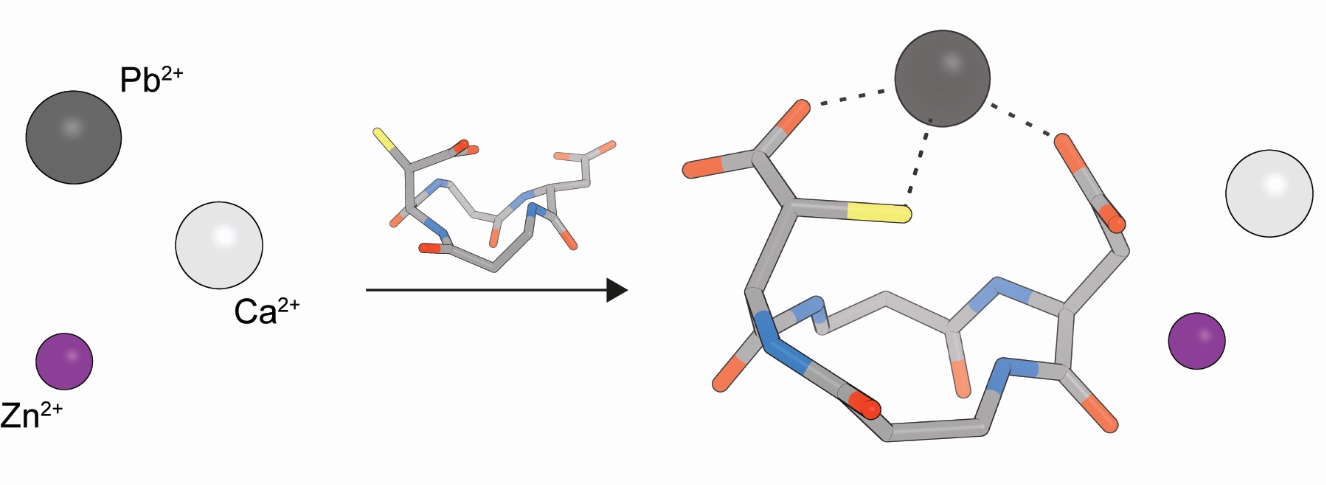Cyclic Tetrapeptides as Next-Generation Remedies of Lead Poisoning
Lead (Pb) is the most abundant toxic metal that causes significant environmental and medicinal issues. Chelation therapy, in which a ligand called a chelating agent is administered to remove the poisonous metal, is the primary approach to handle Pb poisoning. To date, there is no ideal chelating agent for treating Pb toxicity, and the available chelating agents lack metal selectivity. Hence, they are highly toxic by themselves and subsequently prohibited from treating the most affected population segments, including children and pregnant women.[1]
Nature responds to metal poisoning through several creative solutions, most of them involve peptides and proteins as chelators.[2] Inspired by natural systems, we designed and synthesized a family of cyclic tetrapeptides. We investigated their ability to recover Pb-poisoned bacteria and human cells, where two candidates showed a distinguished potency, outcompeting the current clinical chelating agents. Characterizing the Pb-peptide complex of the leading ligand experimentally and computationally disclosed its surpassing metal affinity and selectivity, indicating its promising potential as a novel antidote for Pb poisoning.[3]

[1] Nicholas Rees, Richard Fuller, UNICEF and Pure Earth. 2020.
[2] Christopher Cobbett, Peter Goldsbrough, Annu. Rev. Plant Biol. 2002, 53, 159–182.
[3] Tagwa A. Mohammed, Christoph M. Meier, Tadeáš Kalvoda, Martina Kalt, Lubomír Rulíšek, Michal S. Shoshan, Angew. Chem. Int. Ed. 2021, 60, 12381-12385.